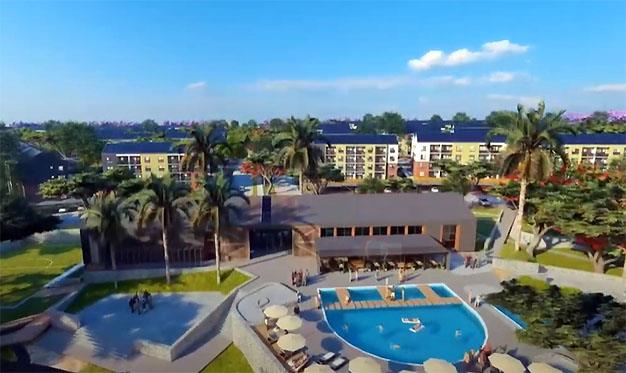Located in one of the most sought-after addresses in the City of Tshwane, with some of the highest average house prices, this new nodal development is expected to be a housing game-changer in more ways than one.

President Cyril Ramaphosa launched the Mooikloof Mega Residential City in Tshwane, Gauteng over the weekend - the public-private partnership development seeking to assist “people who earn too much to qualify for fully subsidised housing but who don’t earn enough to afford debt-financed housing in areas of their choice”.
The development is expected to create 41 000 jobs, while potential homeowners who earn a combined monthly income of between R3,501 and R18,00 will also be able to apply for assistance from government’s Finance Linked Individual Subsidy Programme (FLISP).
READ | How buyers can save R59k on their first bond
Located off Garsfontein Drive, which will be extensively redeveloped – the mega city is about 6km from the junction with De Villebois Mareuil Drive where Woodlands Boulevard Mall is located. It is also 8km from Solomon Mahlangu Drive, which gives access to the N4 and other main arterial routes.
'50 000 sectional title units - largest sectional title property development'
The first phase of the project is residential developments with some 50 000 sectional title units set to become SA’s largest sectional title property development, with land also earmarked for schools, shops and offices. The initial 16 000 apartments will be built in phases over the next few years and are valued at about R9.6bn. Unit prices would range from R499 000 to R799 000.
The successful launch of Mooikloof “reinforces the appropriateness of the District Development Model, and the collaboration of the three spheres of government has made the project possible”, according to the President with City of Tshwane has facilitated the approval of appropriate zoning and the provision of water, waste-water, and energy bulk infrastructure.
Licensing and zone are just some frustrations that investors face with SIPs earmarked to unblock these administrative blockages.
'Don't sacrifice long-term transformation'
In response to the announcement, The South African Institute of Black Property Practitioners (SAIBPP) says it notes with concern the "lack of transformation in the property sector and built environment".
Tholo Makhaola the President of SAIBPP says, "The property and construction sectors continue to be hamstrung by chronic lack of transformation. Black ownership within the R6tn property sector sits at less than 7% and black developers continue to be constrained by lack of access to finance and lack of access to land while companies that demonstrate blatant disregard for B-BBEE and transformation benefit from grants and assistance made possible by public funds.
PODCAST | Why Spatial Transformation matters now more than ever in South Africa
Makhaola says creating jobs in the short term was one thing, especially on the back of Covid-19 but not at the sacrifice of the long-term transformation imperatives that government has set out for themselves and for the country".
"A project of this magnitude, circa R84bn, that forms part of the state-led SIDS programme should have clear, measurable targets with respect to black, female and youth participation at all levels of the value chain – all professionals and professional teams used during all phases of the development including planning, construction and management thereof going forward.
SAIBPP is calling for the following to be implemented for all approved SIDS projects going forward:
- All companies who participate in the SIDS programme and who have submitted projects as part of the SIDS programme must be able to produce at least a Level 2 B-BBEE certificate.
- Should this not be the case, all companies participating in the SIDS programme should demonstrate how they intend to partner with, JV with or ensure meaningful economic and skills transfer during and after the project
- All companies who submit projects for the SIDS programme must commit to procuring 40% of all materials and professional services from South African owned black and women-owned companies
- Granting of approvals and development rights by local authorities must be contingent on the above conditions being met and on companies participating in the SIDS programme demonstrating a fully transformed professional service provider base and company structure.
Makhaola says the "SIDS programme is not just a pipe dream and a talk shop but is now coming to life".
"We continue to support this much needed investment drive and reiterate that as we rebuild the economy, that no person, especially the many black professionals in the property and built environment sector should be left behind."








